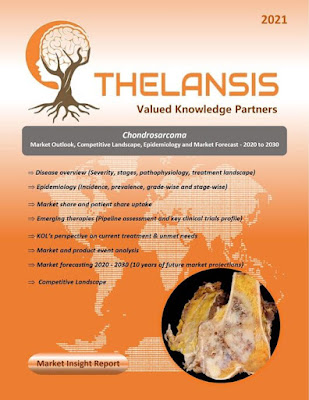Dry Eye Disease (DED) Market Outlook, Epidemiology, Competitive Landscape, and Market Forecast Report – 2021 To 2032
Dry eye disease (DED) is a common
chronic multifactorial ocular surface condition characterised by a failure to
produce high-quality or sufficient amounts of tears to moisturise the eyes.
Ageing, female sex, low humidity environments, systemic medications, and
autoimmune disorders are all common risk factors for this syndrome. DED is
classified as "dry eye with reduced tear production (aqueous
deficient)" or "dry eye with increased evaporation of the tear film
(hyper-evaporative type). Although 10% of people have aqueous deficient DED,
more than 80% have hyper-evaporative type related to meibomian gland
dysfunction (MGD) or a combination of the two. DED can significantly impact
vision and quality of life because symptoms frequently interfere with daily
activities such as writing, reading, or working on video display monitors.
- In the USA, the prevalence of Dry eye
disease (DED) ranges from 5% to 7% in the adult population.
Thelansis’s “Dry Eye Disease (DED) Market
Outlook, Epidemiology, Competitive
Landscape, and Market Forecast Report – 2021 To 2032" covers disease
overview, epidemiology, drug utilization, prescription share analysis,
competitive landscape, clinical practice, regulatory landscape, patient share,
market uptake, market forecast, and key market insights under the potential Dry
Eye Disease (DED) treatment modalities options for eight major markets (USA,
Germany, France, Italy, Spain, UK, Japan, and China).
KOLs insights of
Dry Eye Disease (DED) across 8 MM market from the centre of Excellence/ Public/
Private hospitals participated in the study. Insights around current treatment
landscape, epidemiology, clinical characteristics, future treatment paradigm,
and Unmet needs.
Dry Eye Disease (DED) Market Forecast Patient
Based Forecast Model (MS. Excel Based Automated Dashboard), which Data Inputs
with sourcing, Market Event, and Product Event, Country specific Forecast
Model, Market uptake and patient share uptake, Attribute Analysis, Analog
Analysis, Disease burden, and pricing scenario, Summary, and Insights.
Thelansis Competitive Intelligence (CI) practice
has been established based on a deep understanding of the pharma/biotech
business environment to provide an optimized support system to all levels of
the decision-making process. It enables business leaders in forward-thinking
and proactive decision-making. Thelansis supports scientific and commercial
teams in seamless CI support by creating an AI/ ML-based technology-driven
platform that manages the data flow from primary and secondary sources.
-1.jpg)

Comments
Post a Comment